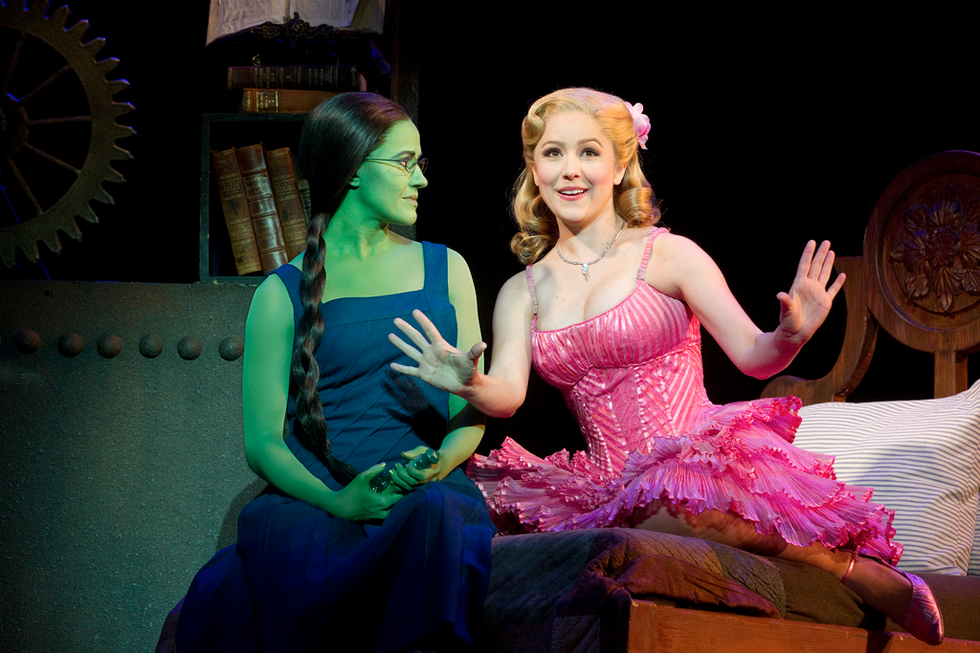Wicked, the hit Broadway musical, has been running at the Gershwin Theatre since 2003 and stunning audiences ever since. Aside from the set and special effects that stun audience members, the songs eloquently comment on race and the effect it has on one’s self-worth.
Elphaba, the musical’s heroine, takes the audience through her untold story before she was deemed The Wicked Witch of the West in The Wizard of Oz. Her defining characteristic from the original film was that her skin was green. Her green skin gave playwright and lyricist Winnie Holzman an appropriate method to discuss race in a more abstract, yet intriguingly direct, context.
Early on in Act One, Elphaba arrives at Shiz University to study Wizardry. She is ecstatic when the Wizard notices her talents and wants to train her directly. In the number “The Wizard and I”, Elphaba hopes that she will be able to do an immense amount of good for all of the people in Oz, and in return she hopes the Wizard will “degreenify” her, because she believes that a girl who is so good inside should have a matching exterior, since “people are so fixated on [her] verdigris.” Hidden in Stephen Schwartz’s score lies the plaguing idea that in order for someone to be of importance, they should conform to society’s view of accepted outward appearances, regardless of their accomplishments.
Another instance in which Elphaba’s appearance comes into play is in the number “Popular”, where Galinda, who later finds herself to be the Good Witch of the North, feels the need to make Elphaba her new “project,” and help her change her appearance in order to be more successful. Galinda calls Elphaba a “depressing creature with unprepossessing features,” and tells her that successful people in society are not intelligent, rather they are able to rise to power due to their appearance. Schwartz crafts this surprisingly upbeat number to mask the hurtful and offensive things that Galinda says to Elphaba. At this point, Elphaba is torn between wanting to change herself to be accepted by society, and staying true to who she is.
At the end of the Act One, Elphaba realizes the Wizard’s true, malicious intentions, and that her appearance does not verify her goodwill and the good deeds she performs. The number Defying Gravity closes Act One. In a triumphant, emotional ballad, Elphaba declares that “If [she’s] flying solo, at least [she’s] flying free,” and that all of the good she will do will make her seem to defy gravity so that no one will be able to bring her down. Here, Elphaba literally hovers over the stage, and the lights are all green. This is symbolic of how she makes the choice to embrace her skin color, and rise over the adversity presented by it.
Schwartz’s score and Holzman’s lyrics wonderfully depict the change of self that Elphaba undergoes in Wicked. At first, she feels as though her good deeds will only be recognized if her skin color is acceptable. By the end of the first act, however, Elphaba realizes that her skin color should not hold her back. The songs featured do an excellent job of conveying the struggles that minorities face in society due to the color of their skin.
Millions of people worldwide have been exposed to the powerful message that Wicked sends to its audience. Many don’t directly correlate this story with the moral philosophy that one can rise above adversity presented by their skin color on their first exposure to this musical. While this sentiment is shared indirectly, Wicked discusses it in an extremely direct manner.
It should not take someone who is green to make an audience sympathize with a protagonist of color.




















